More From News
Welcoming Ramadan with a Fresh Spirit: UIII Inaugurates New Mosque Board
February 13, 2026
Cycle of Civilization
February 12, 2026
November 14, 2025
Contributor: Supriyono | Photo: Achmad Jatnika
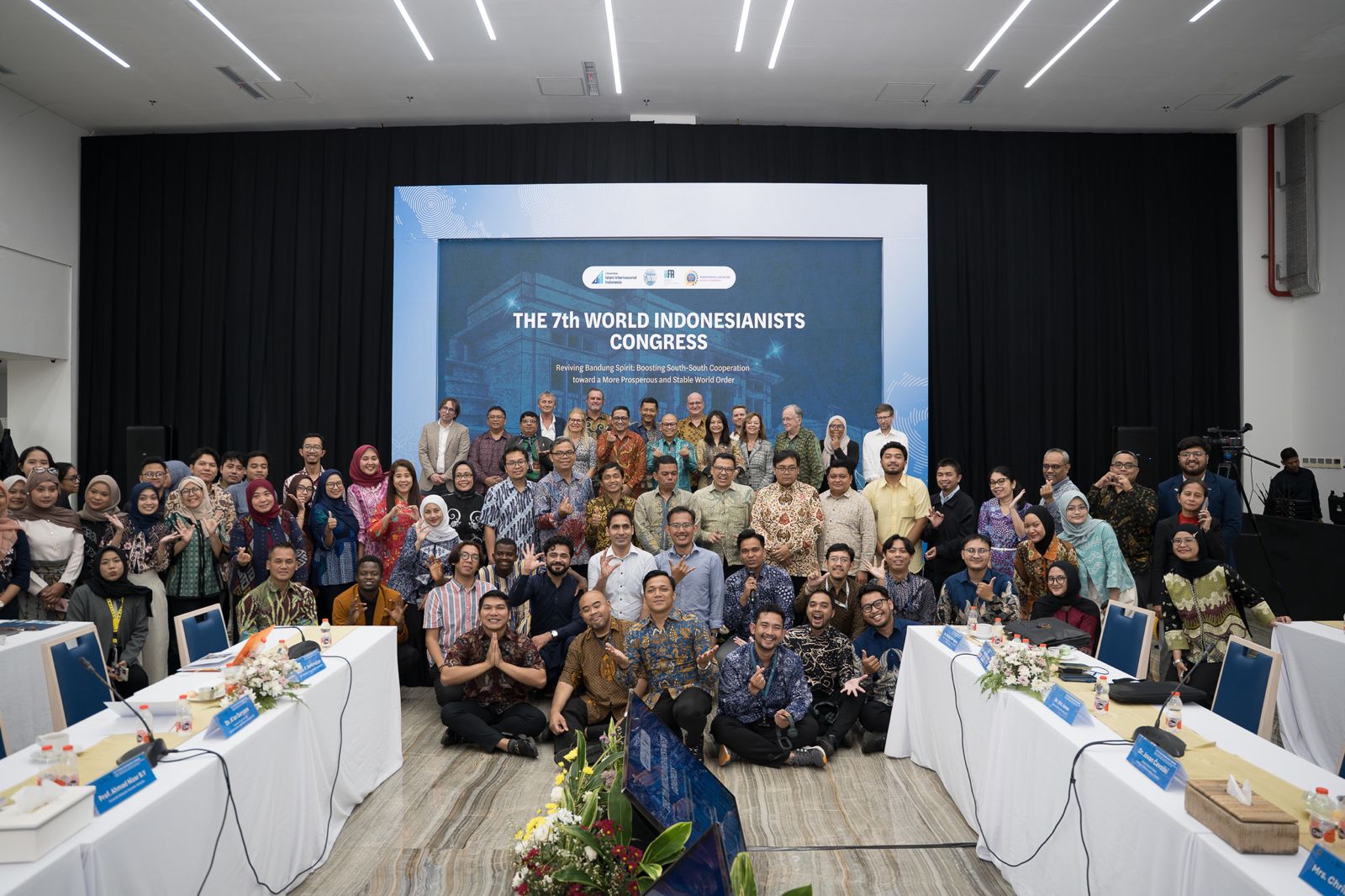
The 7th World Indonesianist Congress, jointly organized by the Ministry of Foreign Affairs of Indonesia and Universitas Islam Internasional Indonesia (UIII), concluded with a strong call for renewed global cooperation and reflection on Indonesia’s evolving role within the Global South.
During the closing ceremony, Philips Vermonte, PhD, Dean of UIII’s Faculty of Social Sciences, highlighted eight key takeaways from the two-day congress that brought together Indonesianists, scholars, and policymakers from around the world.
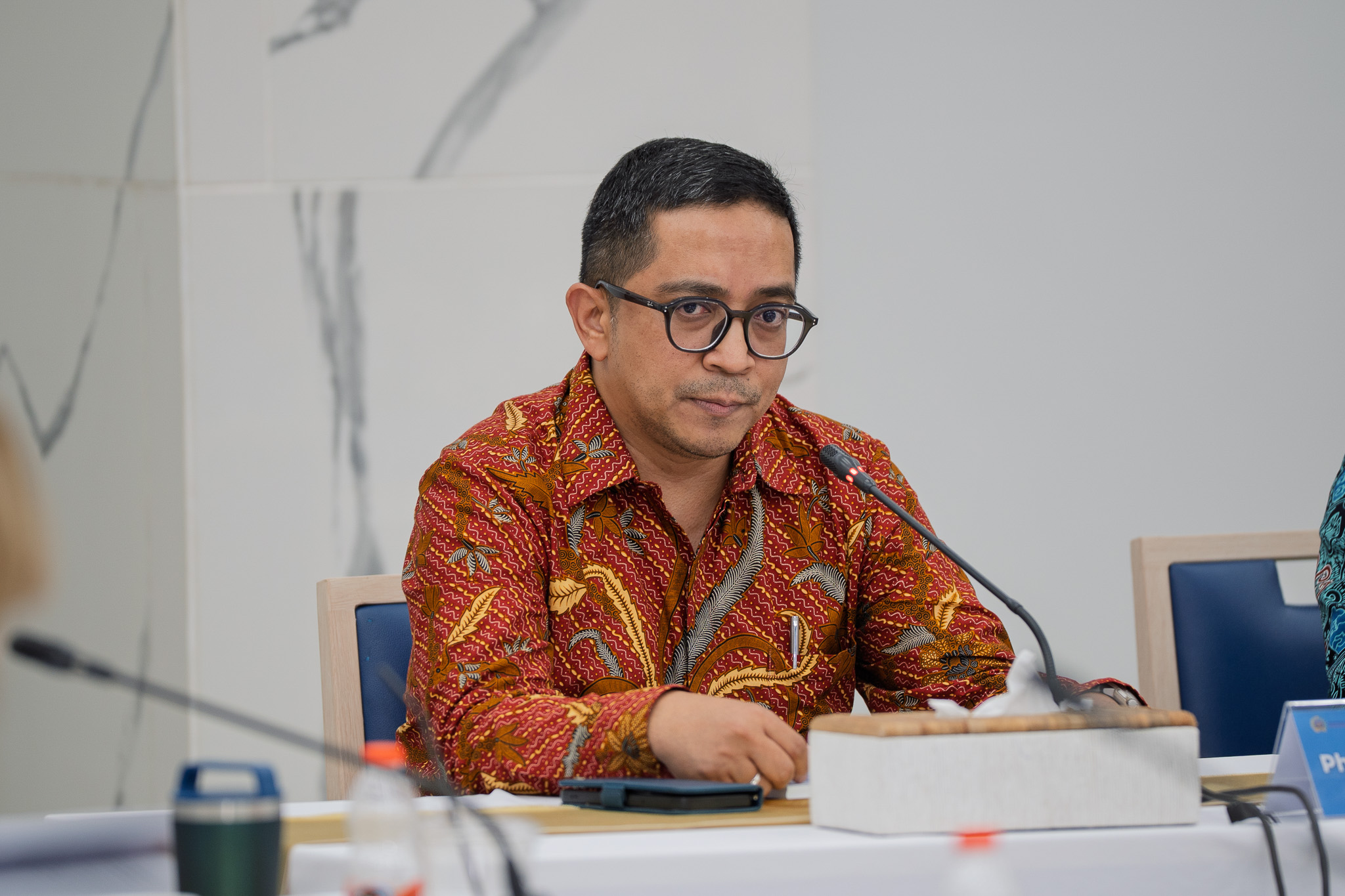 Strengthening South–South and Triangular Cooperation
Strengthening South–South and Triangular Cooperation
Dr. Vermonte emphasized that while South–South Cooperation remains crucial for developing nations, it should also expand into “South–South–Triangular Cooperation,” involving partners from the Global North. He cited examples of collaborative programs at UIII supported by the Norwegian, Dutch, and UK embassies that help connect countries across the Global South through education.
Addressing Planetary Challenges with Balance
The dean also highlighted the urgent need for developing nations to balance economic development with environmental sustainability, describing climate change as a planetary-level challenge. “We are latecomers in industrialization — about 300 years behind Europe. So we need to think hard about how to achieve our economic development goals while sustaining the planet,” he stressed.
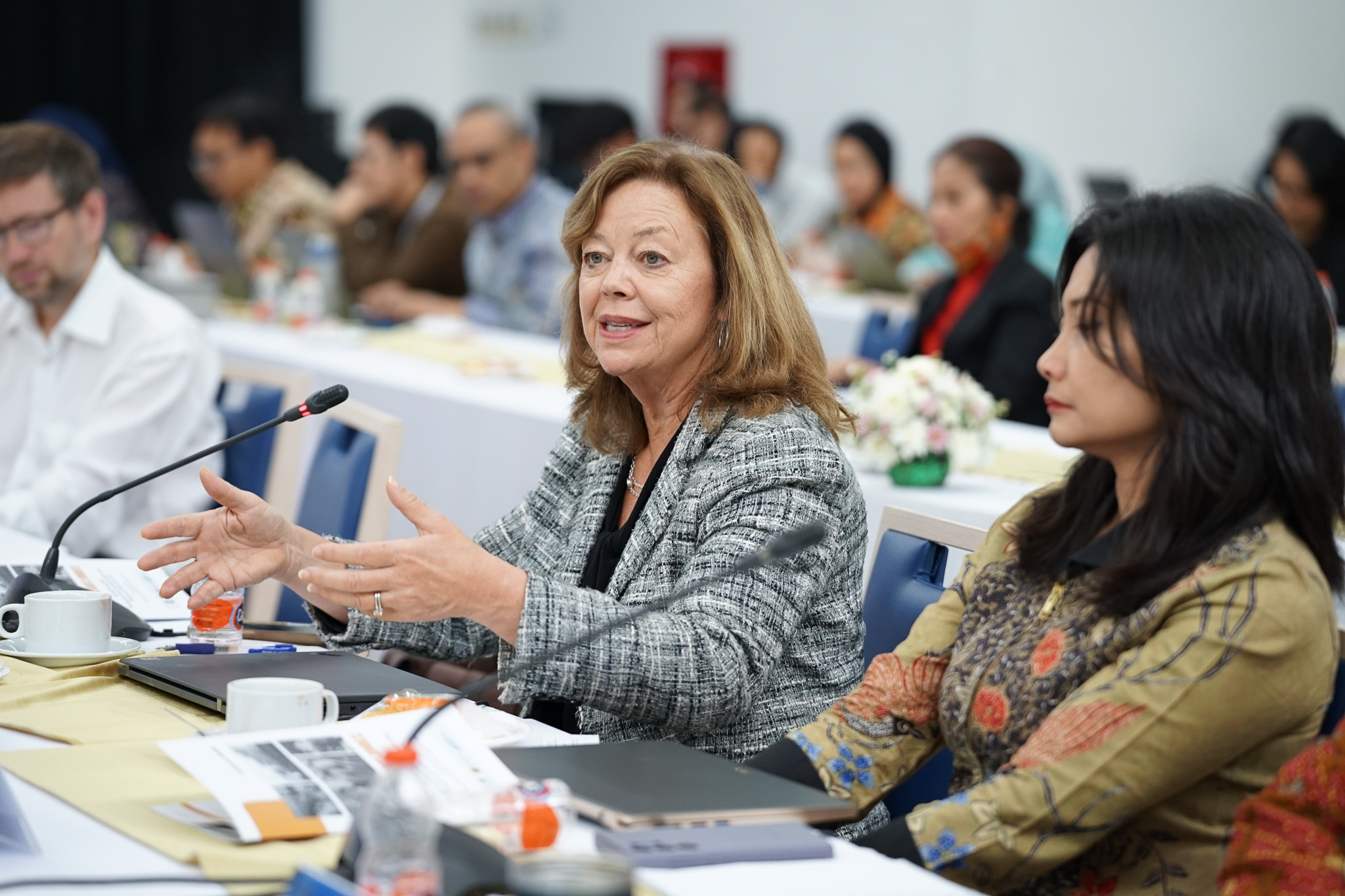 Beyond Anti-West Sentiments
Beyond Anti-West Sentiments
More importantly, Dr. Vermonte urged participants not to interpret South–South cooperation as a rejection of the West. “South–South cooperation shall not be equated with an anti-West sentiment,” he said, highlighting Indonesia’s long-standing foreign policy of being free and active. He added that Indonesia must “exercise strategic autonomy” amid growing geopolitical uncertainty.
Reflecting on the Bandung Spirit
Seventy years after the 1955 Bandung Conference, he noted, this congress provided an opportunity to reassess Indonesia’s capacity and role in shaping the collective future of developing nations. “Reflecting on this Bandung Conference 70 years later helps us realize what Indonesia can do—or cannot do—as a sovereign state and as part of the larger developing nations of the Global South,” he reflected.
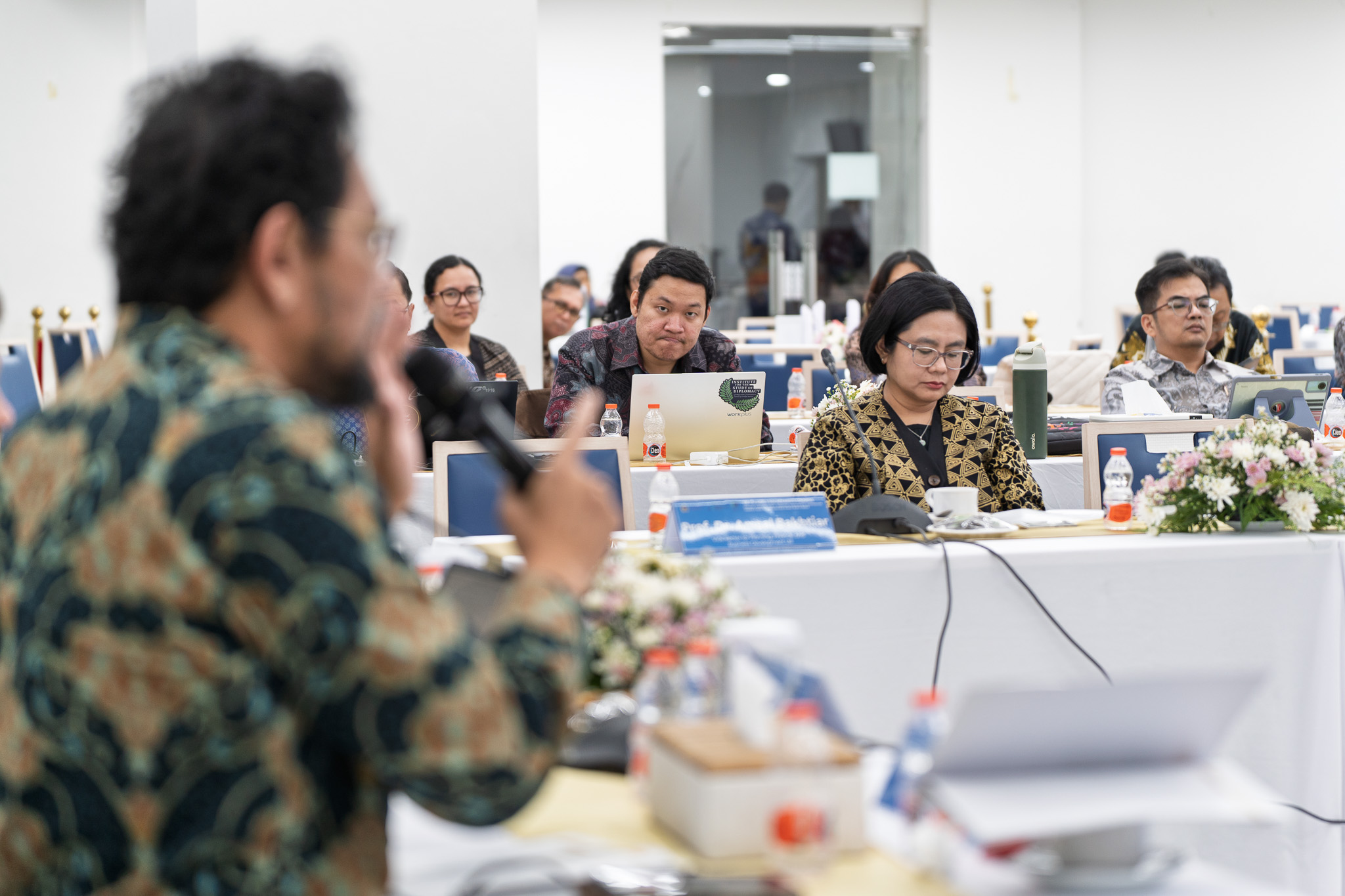 Revisiting Indonesia’s Identity
Revisiting Indonesia’s Identity
The discussions also revisited Indonesia’s national identity—questioning whether it has transformed since independence or continues to reflect the same aspirations set in the 1950s. “We’ve been wrestling with the question of our identity, whether our identity as a newly independent country has changed in the past 70 years, or has it not changed at all since 1955?”
Honest Reflections from Friends of Indonesia
Dr. Vermonte appreciated the ‘frank’ feedback from international scholars, acknowledging that constructive criticism—though sometimes sharp—comes from Indonesia’s friends who wish to see the nation do more and do better on the global stage. “Some speakers reminded us of our limitations, what we are capable of doing—or not capable of doing. And that’s important,” he said.
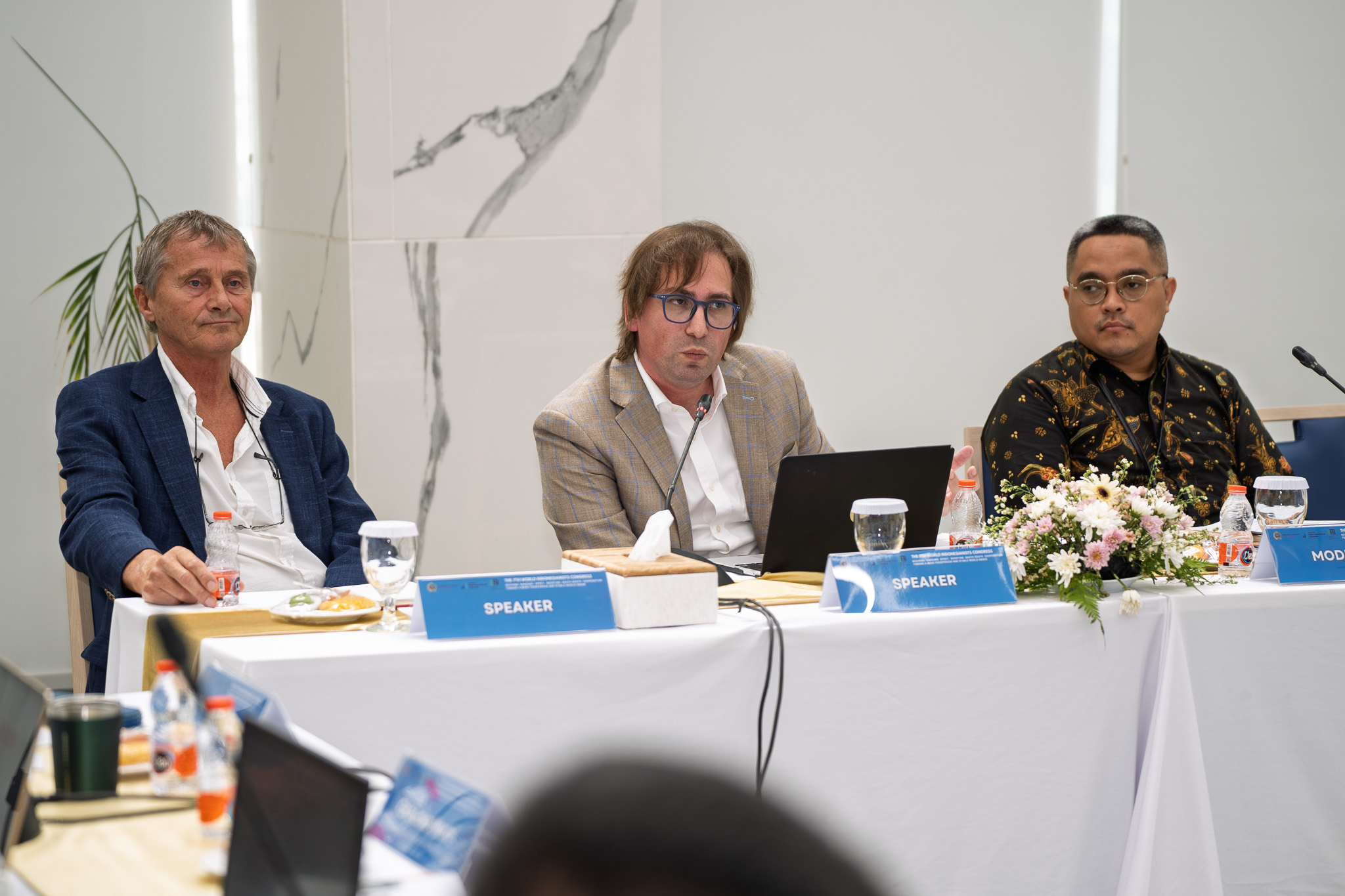 Strengthening Collaboration Between UIII and the Ministry
Strengthening Collaboration Between UIII and the Ministry
Dr. Vermonte also announced a new partnership between UIII’s Faculty of Social Sciences and the Ministry of Foreign Affairs through BSKLN. “We signed a letter of commitment to continue collaboration in research and soft diplomacy. We hope this Congress becomes the foundation for many more to come,” he said.
The Dialogue Does Not End Here
In closing, Dr. Vermonte expressed appreciation to the organizing teams from both institutions and emphasized that the Congress should mark a beginning rather than an end. “We hope the discussion will continue in various forms — in smaller venues, in your respective institutions, with or without us — but taking the spirit of Bandung 1955 and the renewed understanding we’ve gained in the past two days.”
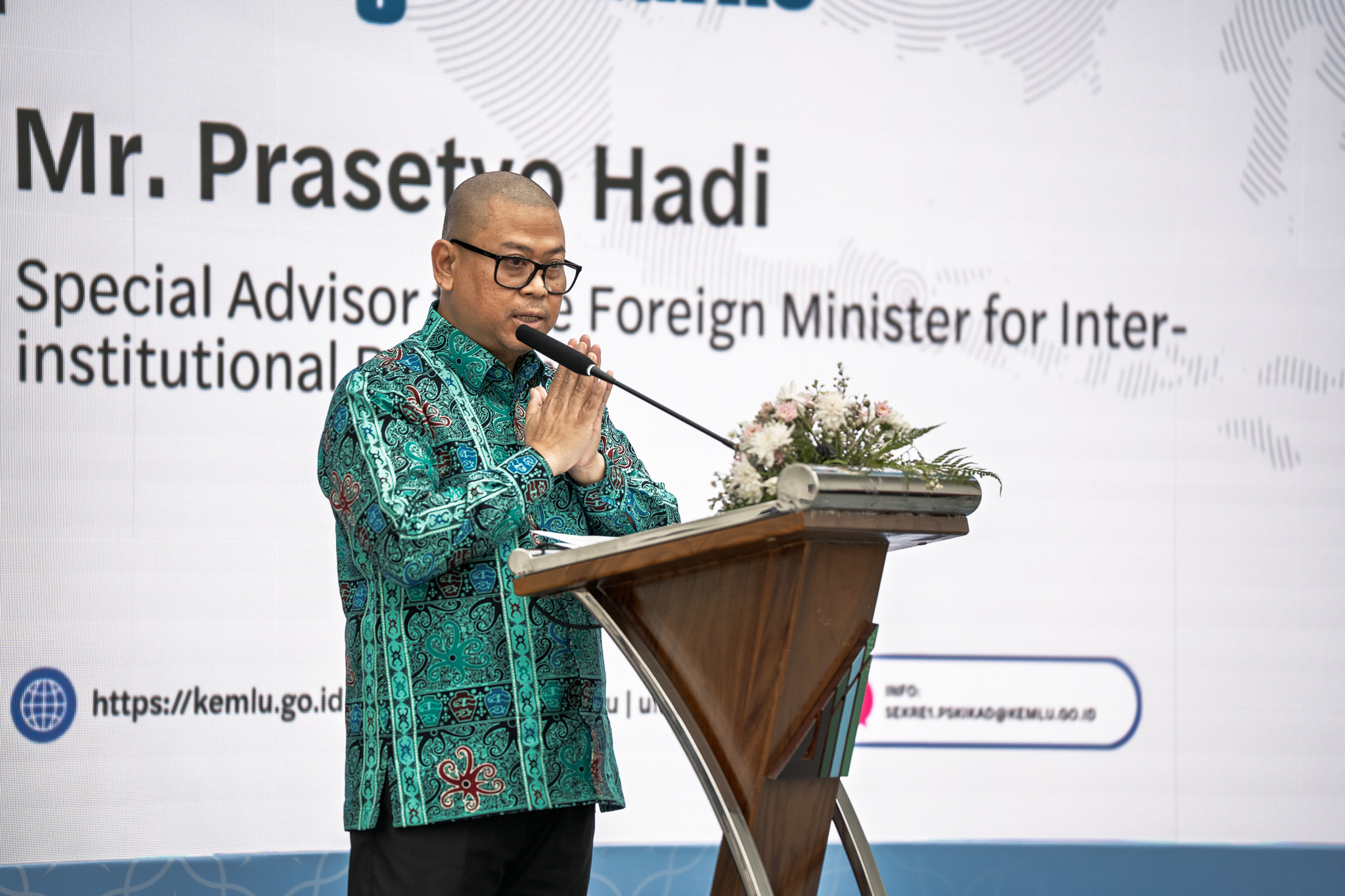 Echoing the dean’s reflection on the congress, the Special Advisor to the Minister for Inter-Institutional Relations, Mr. Prasetyo Hadi, emphasized that the Spirit of Bandung should remain “a living, breathing principle” that continues to guide relations among nations amidst new geopolitical divisions and systemic inequalities.
Echoing the dean’s reflection on the congress, the Special Advisor to the Minister for Inter-Institutional Relations, Mr. Prasetyo Hadi, emphasized that the Spirit of Bandung should remain “a living, breathing principle” that continues to guide relations among nations amidst new geopolitical divisions and systemic inequalities.
“The world today needs more cooperation, not less. It needs more bridges, not more walls,” said Mr. Hadi. “Let us carry forward the Spirit of Bandung not only as a memory, but as a mission.”
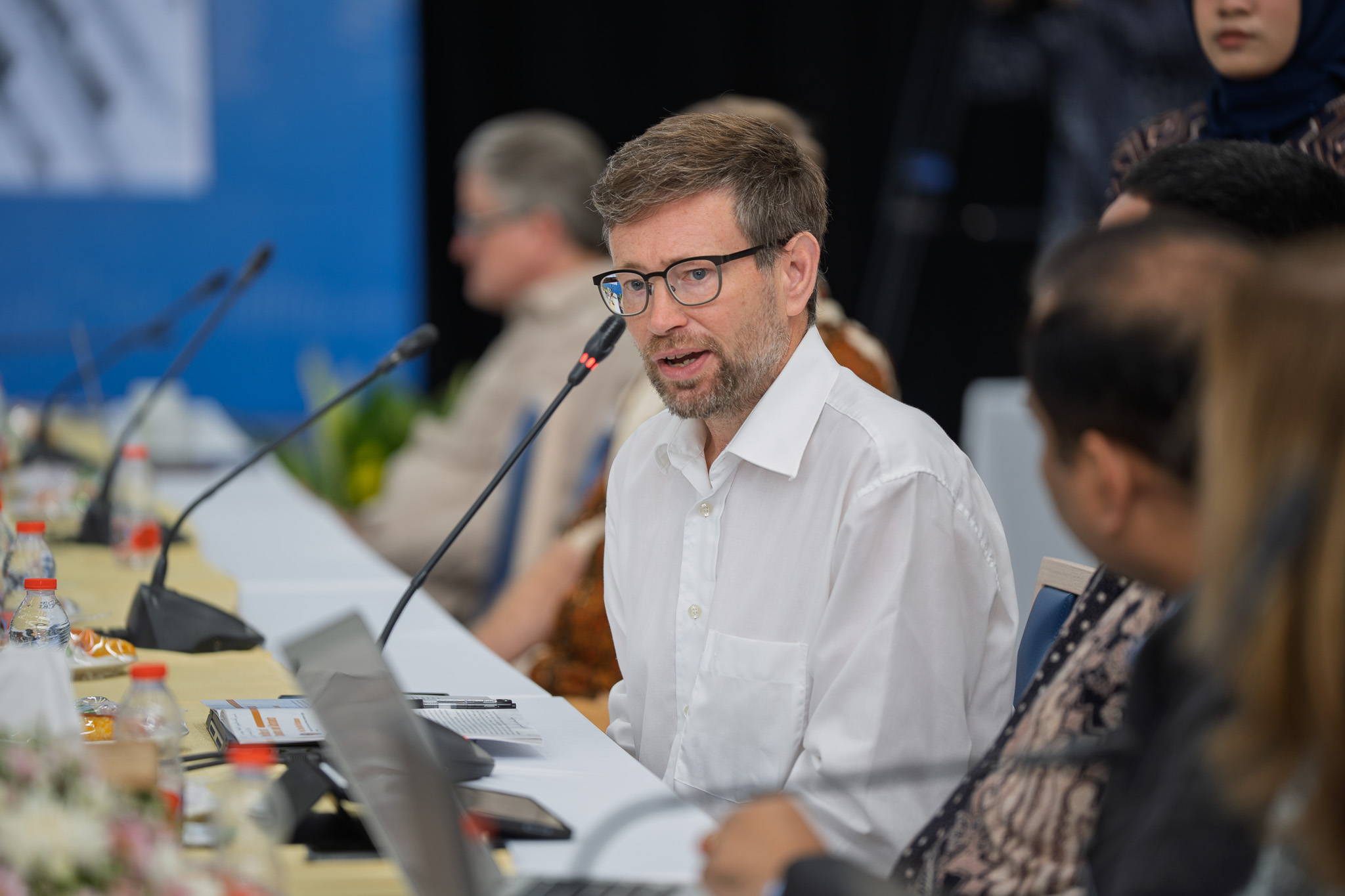 For the past two days, the 7th World Indonesianist Congress has gathered 15 Indonesianists—academics, researchers, and professionals from around the world—who dedicate their work to understanding Indonesia. They discussed contemporary political, economic, and sociocultural issues from a global perspective.
For the past two days, the 7th World Indonesianist Congress has gathered 15 Indonesianists—academics, researchers, and professionals from around the world—who dedicate their work to understanding Indonesia. They discussed contemporary political, economic, and sociocultural issues from a global perspective.
The first session, “Indonesia’s Bridging Role and the Future of South–South Cooperation,” featured Dr. Ann Marie Murphy (Seton Hall University, USA), Prof. Anders Uhlin (Lund University, Sweden), Dr. Tufan Kutay Boran (Social Sciences University of Ankara), and Prof. Farish A. Noor (Universitas Islam Internasional Indonesia).
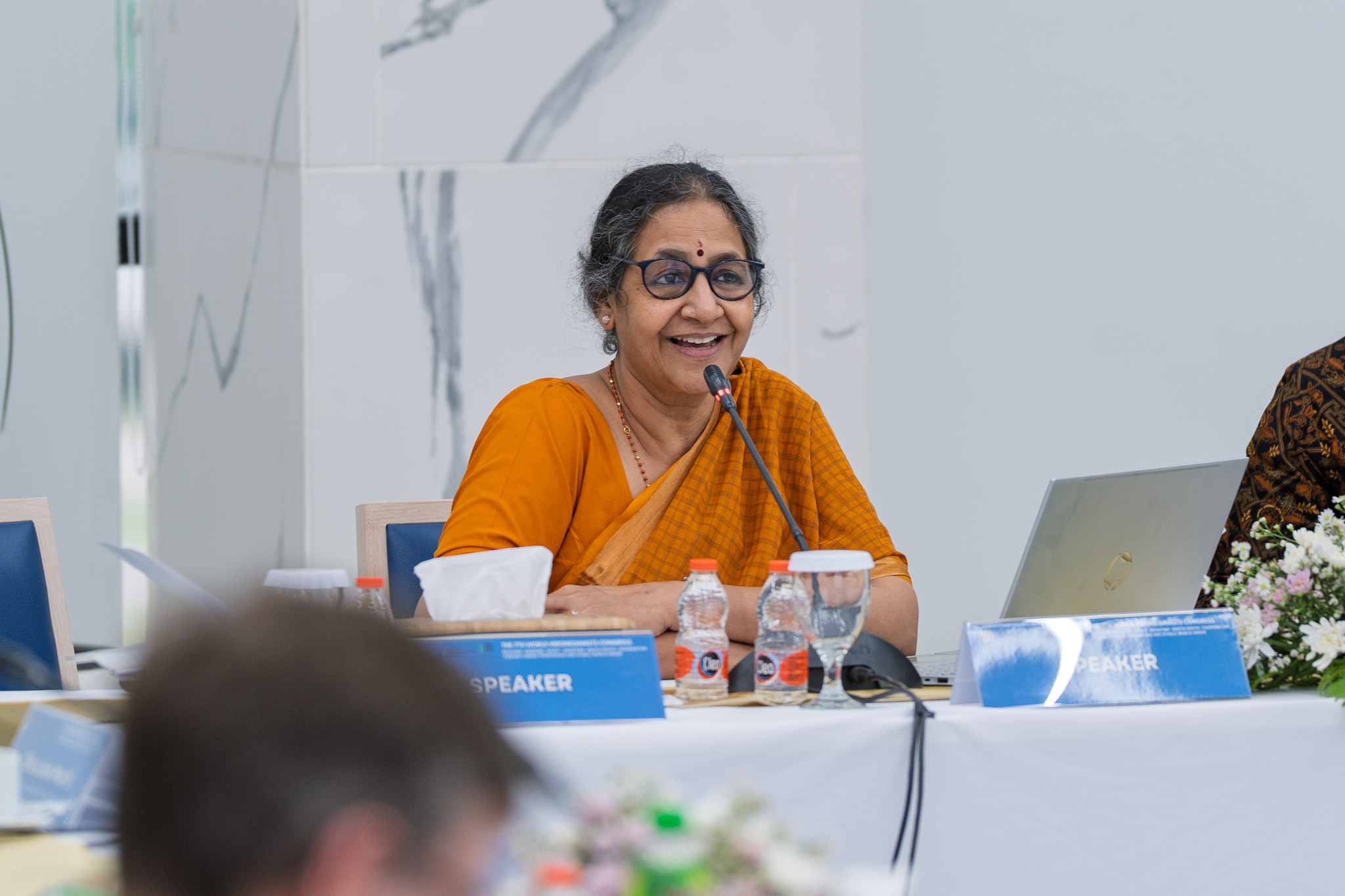 The second session, “Economic Development, Climate Action, and the Blue Economy,” brought insights from Prof. Stein Oluf Kristiansen (University of Agder, Norway), Prof. Ignacio Ortiz Vila (Universidad del CEMA, Argentina), and Dr. Jae-Hoon Lee (Daejin University, South Korea).
The second session, “Economic Development, Climate Action, and the Blue Economy,” brought insights from Prof. Stein Oluf Kristiansen (University of Agder, Norway), Prof. Ignacio Ortiz Vila (Universidad del CEMA, Argentina), and Dr. Jae-Hoon Lee (Daejin University, South Korea).
The final session, “Cultural Exchange and the Bandung Spirit in Education,” featured Prof. Cedomir Nestorovic (ESSEC Business School, Singapore), Prof. Michael G. Vann (California State University–Sacramento, USA), Mr. Ezequiel Ramoneda (ALADAA, Argentina), Dr. Jyoti Arora (Mount Abu Public School, India), and Dr. James Guild (UIII, Indonesia).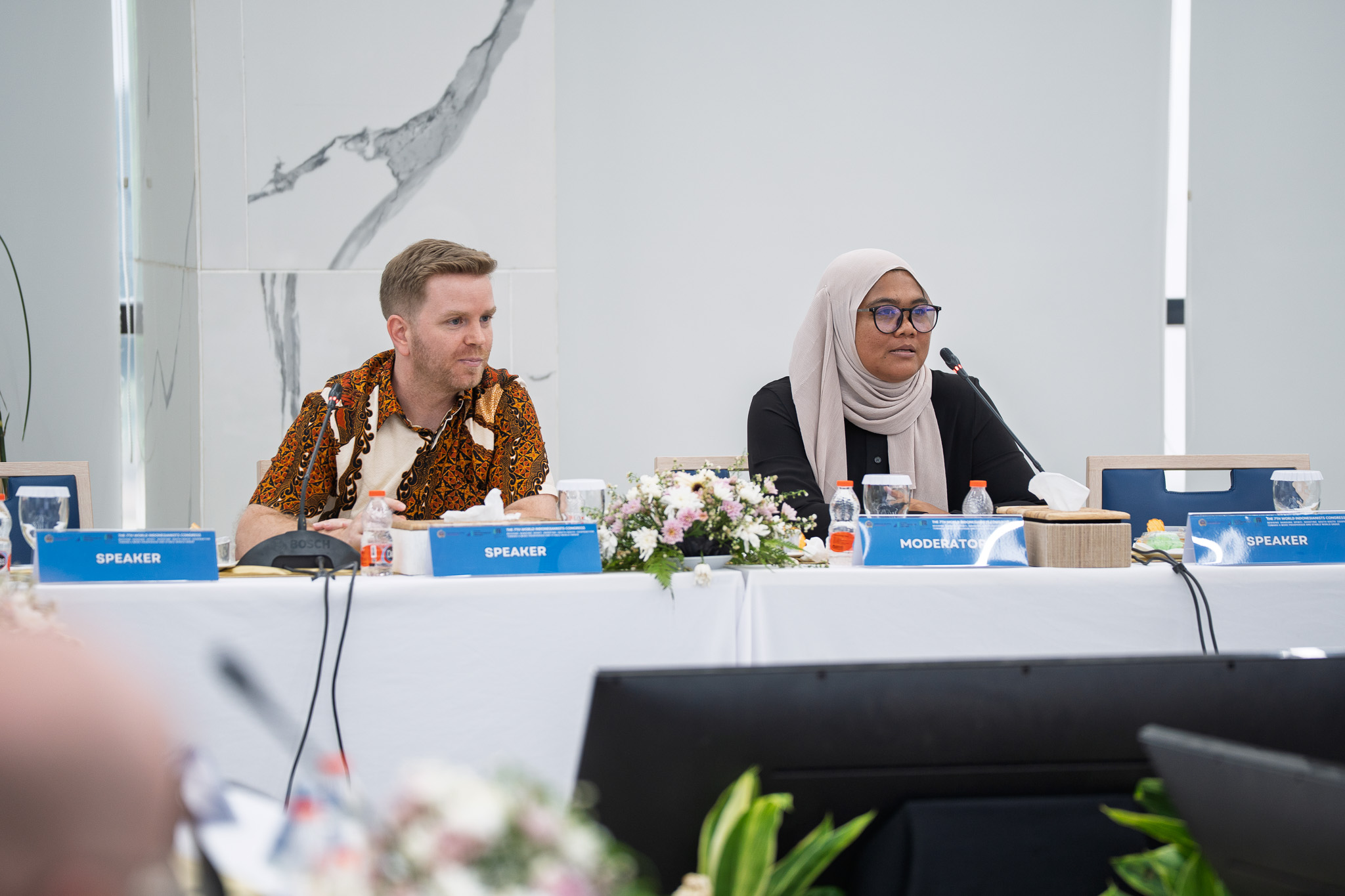
Universitas Islam Internasional Indonesia